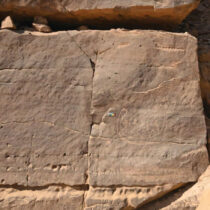Call for papers: EASR 2019 Religion – Continuations and Disruptions, Tartu, Estonia, 25-29 June 2019
Panel title: ‘Women’s agency and religious networks’
Panel chairs: Asuman Lätzer-Lasar, Sabine Neumann, Julietta Steinhauer
We invite abstracts for a panel on ‘Women’s agency and religious networks’. The abstract may contain max. 300 words. Five keywords are allowed. The deadline for submitting or modifying an abstract is 15th December 2018, 23h59 CET. You can find our panel at https://www.conftool.com/easr2019/index.php?page=submissions . For submitting an individual paper within our panel, please follow the instructions at https://easr2019.org/call-for-individual-papers/
General queries can be directed at these email addresses: [email protected], [email protected] or [email protected]
Panel abstract and research questions:
This panel explores the agency of women in and via religious networks from antiquity to the present, allowing for an interdisciplinary and comprehensive approach and a comparative discussion of the subject matter. Throughout the history of religions, women have initiated, shaped and maintained religious networks in their capacities as founders, priests, benefactors, dedicands, worshippers and more. Female agents were responsible for cult foundations, cult transfers and the creation of new religious organisations. Yet our understanding of female networks, agency and ‘religious creativity’, is limited, partly owing to the place of women on the margins of many societies. The panel aims, on the one hand, to narrow the gap in knowledge with regard to female agency and the establishment, maintenance and decline of religious networks. On the other hand, it raises questions about current approaches to gender and religion by inviting panellists to present their studies from an intersectional perspective. This perspective allows us to see beyond the single category of gender by taking into account the various factors that shape an individual’s (religious) experience, such as origin, social, and marital status.
Main questions to be explored in this panel are:
-How did women shape their environment through religious activities within and outside the framework of a religious network?
-Where do we find representations of women’s agency and female networks in textual and material culture?
-What triggers the creation of women’s religious ‘networks’, how do they develop and what leads to their end?
-To what extent is the creation of religious networks linked to migration?
-In what ways were female agents involved in the creation (or establishment) of new religious practices, their distribution and, at the same time, the continuation of religious traditions?
-To what extent are particular religious practices and networks socially associated with female agency?
-To what extent are gender-related practices that were marginalised by societies equally associated with other social spheres such as the household, magic and witchcraft?
-Can factors such as gendered (social) space, gender-related exclusions from religious activities and social caging stimulate or prevent the creation of religious networks?
We welcome papers from the broad range of disciplines usually represented at the EASR meetings, such as history of religion, ancient history, archaeology, but also sociology etc., which focus on
-conceptual and theoretical reflections on terms and models such as ‘intersectionality’, ‘third-spacing’ and ‘social caging’
-actions and reactions between religion and migration and interactions between religious communities, and
-social, political and gendered aspects of religious change as represented by the establishment of religious networks by women in the Mediterranean basin and adjacent areas within a period spanning from Antiquity until the present day.
Dr. Asuman Lätzer-Lasar Research Associate/Junior Fellow Max Weber Centre for Advanced Cultural and Social Studies University of Erfurt/Germany
Dr. Sabine Neumann Research Associate Institute for Archaeology University of Marburg/Germany
Dr. Julietta Steinhauer Research Associate/Teaching Fellow History Department University College London/UK





